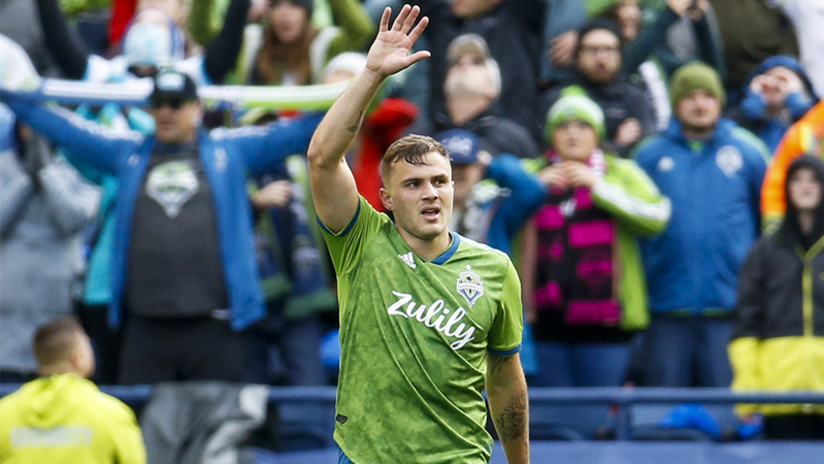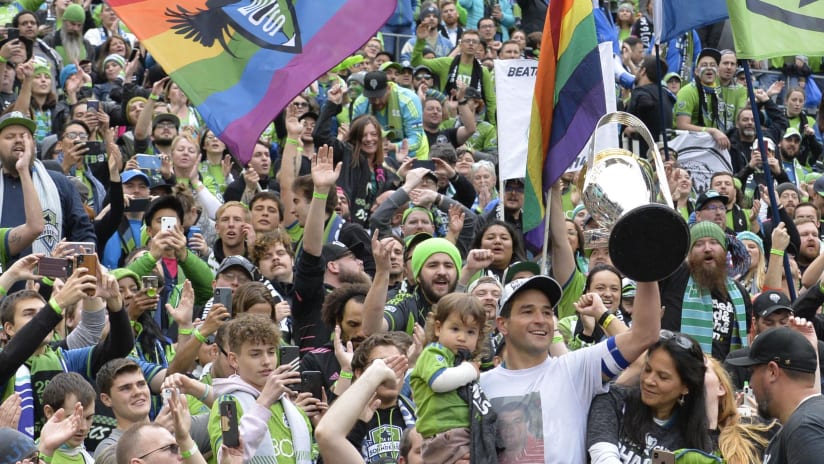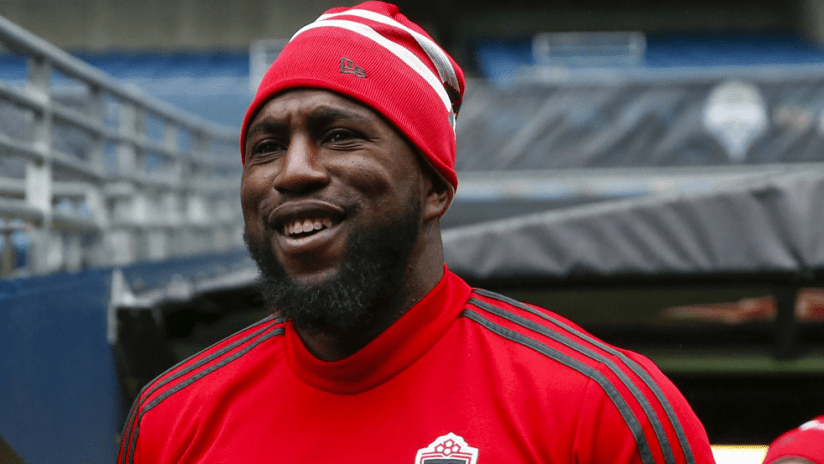The Seattle Sounders and Toronto FC are in the 2019 MLS Cup Final for a reason. Both had strong regular seasons and both have had stellar runs to the championship match on Sunday (3 pm ET | ABC, Univision, TUDN in US; TSN, TVAS in Canada). But that doesn't mean they enter the match without weaknesses, and one side is primed to raise their second Philip F. Anschutz Trophy because of their opponent's shortcoming.
The 2019 version of TFC have been poor at defending the wide areas of the field, and this just so happens to be where Seattle are strong in the attack. The outcome of this game will hinge on which team can control those spaces.
In the regular season, defending out wide was Toronto's Achilles’ heel, especially in transition as Toronto’s possession-based attack relied on pushing their fullbacks upfield. When they turned the ball over, teams played long balls quickly behind the fullbacks to the flanks, forcing either Michael Bradley or Toronto’s center backs to defend 1v1 in space, where they were not as effective.
As a result, Toronto were much more likely to concede from wide possessions, and they allowed the fifth highest share of expected goals (xG) in MLS resulting from passes from the flanks:
Team |
% of xG allowed on passes from the wings |
|---|---|
Red Bulls |
72.2% |
Portland |
71.4% |
RSL |
71.4% |
Vancouver |
71.1% |
Toronto |
70.9% |
Toronto have tightened up their defending there in the Audi 2019 MLS Cup Playoffs, though, with two adjustments. First, they’re re-pressing at a higher frequency. When Toronto lost the ball in the last two games, they've looked to press the backline, making it harder for NYCFC and Atlanta United to quickly ping passes wide out of the back. This has mostly worked to limit opponents’ transition opportunities before they begin, and their passing percentages out of the back in transition were about 10 percentage points lower than expected.
Their second adjustment takes away the end location of those transitions. Toronto’s fullbacks aren’t pushing up as high in possession. Auro and Justin Morrow are both playing the ball on average nine yards closer to Toronto’s own goal in the playoffs. This limits space to play behind them when opposing teams win the ball back. In the regular season, opposing long balls against Toronto frequently went to those spots behind the fullbacks.
In the below graphic, bluer hexagons denote more long balls were completed in those locations:
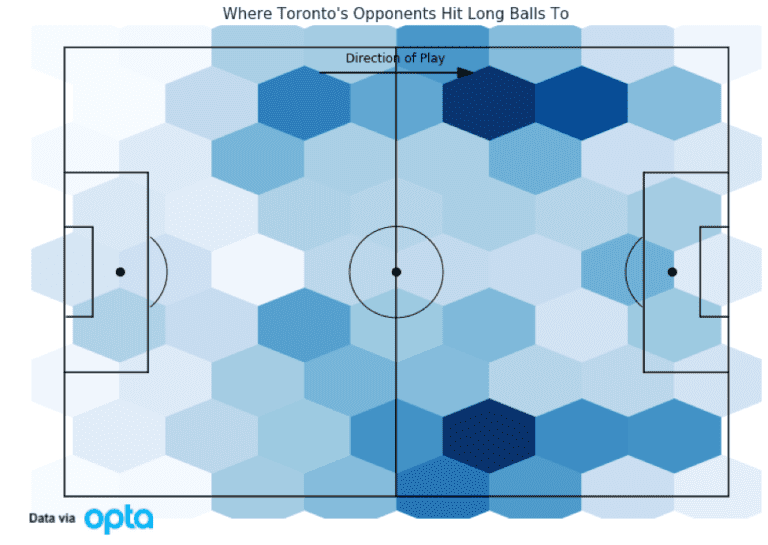
In the playoffs, however, that adjustment has taken away deep transition opportunities, especially down the right:
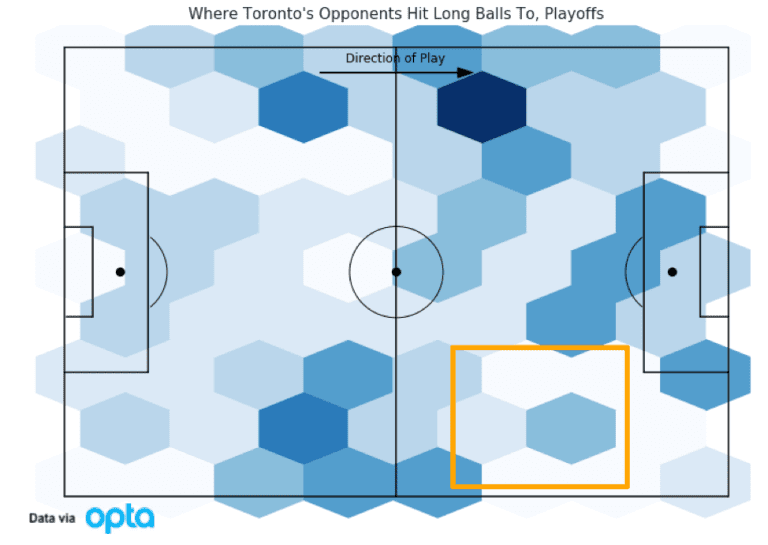
Opposing teams are now completing fewer long balls — their success rate is at 40%, down from 56% in the regular season — and the counters they do complete are less effective. They lead to shots just 10% of the time, as compared to 14% in the regular season. Given their regular-season struggles out wide and in transition, these are exactly the right adjustments for a single-elimination tournament.
Seattle's attack, meanwhile, thrives by playing out wide and in transition. Thanks to Brad Smith and Jordan Morris, Seattle plays down the left wing more than any other team in the league:
Team |
% of passes coming on the left |
|---|---|
Seattle |
42% |
Chicago |
40% |
Vancouver |
40% |
Houston |
40% |
Cincinnati |
40% |
And they generate MLS’s second best chances on average from passes coming from the left:
Team |
xG per shot on shots off left-side passes |
|---|---|
Houston |
.139 |
Seattle |
.119 |
New England |
.111 |
LA Galaxy |
.111 |
LAFC |
.111 |
In addition to their prowess down the left flank, Seattle have been lethal on the counter in the playoffs. Twenty-two percent of their possessions that include a long ball end in a shot, as compared to the league average of 12%.
This all makes their attack a dangerous combination for Toronto. Even with their improved form, Toronto are still just a bit above average, while Seattle are elite out wide. Whether Toronto’s improvement there is enough will be central in determining who wins MLS Cup on Sunday.

